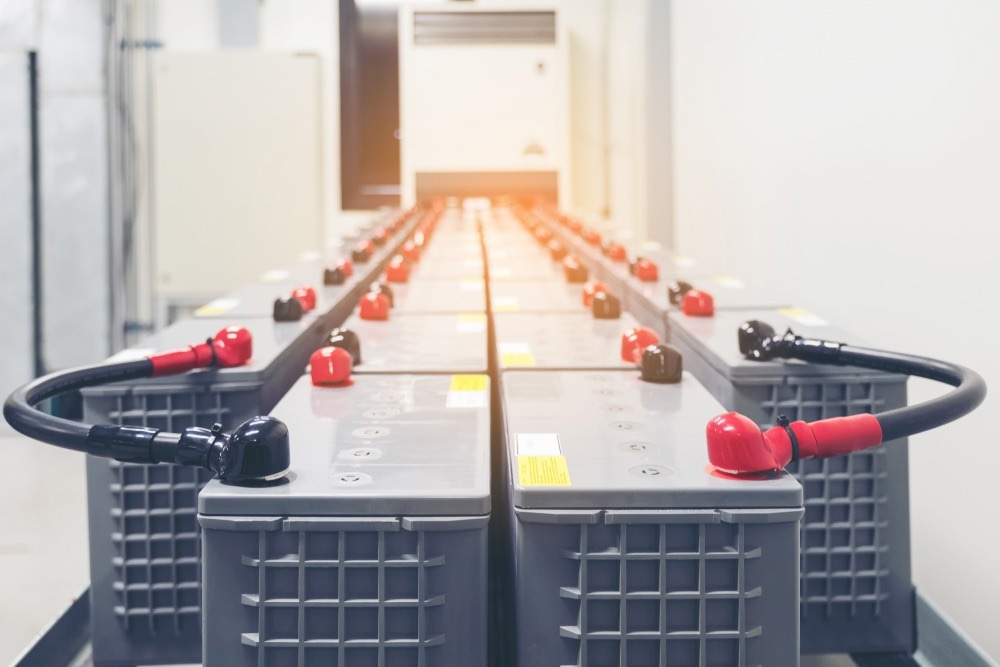A research team led by Prof. Ping Chen at the Dalian Institute of Chemical Physics (DICP), Chinese Academy of Sciences (CAS), reported in Nature on September 17 that they created a new core–shell hydride ion electrolyte and built the first rechargeable hydride ion prototype battery.

Image Credit: tong patong/Shutterstock.com
Hydride ions (H− ) are regarded as promising charge carriers for future electrochemical technologies due to their light mass and high redox potential. Yet, the absence of effective electrolytes that combine rapid hydride ion transport, thermal stability, and electrode compatibility has limited their real-world use.
Using a design inspired by heterojunctions, researchers synthesized a novel core-shell composite hydride, 3CeH3 @BaH2. This structure features a thin BaH2 shell encapsulating a CeH3 core.
This design leverages the high hydride ion conductivity of CeH3 and the stability of BaH2, allowing for fast hydride ion conduction at room temperature and providing excellent thermal and electrochemical stability.
Researchers constructed the first all-solid-state hydride ion prototype battery, using CeH2|3CeH3@BaH2|NaAlH4 as the active cathode material. The battery's positive electrode delivered an impressive initial discharge capacity of 984 mAh/g at room temperature. After 20 cycles, it maintained a capacity of 402 mAh/g, demonstrating its performance over time.
In a stacked configuration, the battery's operating voltage reached 1.9 V, successfully powering a yellow light-emitting diode (LED) lamp.
This demonstration is a compelling example of the battery's potential for practical use. The achievement marks the development of the first-ever hydride ion prototype battery by Chinese researchers, representing a major leap from a "fundamental concept" to a verifiable, working device.
Using hydrogen as the charge carrier helps prevent dendrite growth, enabling safer, more efficient, and sustainable energy storage. Thanks to the adjustable characteristics of hydride-based materials, hydride ion batteries show promise for clean energy storage and conversion.
Journal Reference:
Cui, J., et al. (2025). A room temperature rechargeable all-solid-state hydride ion battery. Nature. doi.org/10.1038/s41586-025-09561-3